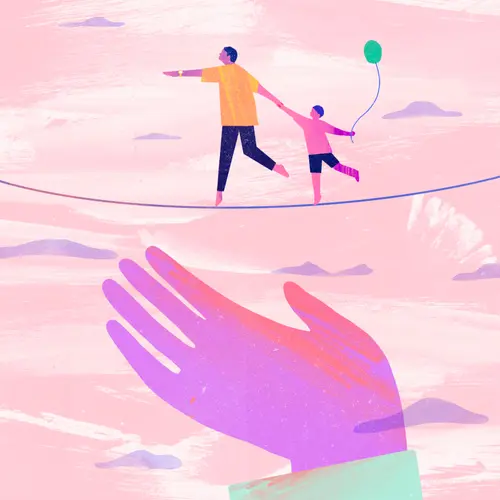Many children with ADHD – or attention deficit hyperactivity disorder – also have other mental, emotional, and behavioral conditions including generalized anxiety disorder. Sometimes a child may have both ADHD and anxiety, and other times children are misdiagnosed with ADHD when they have anxiety.
According to a survey by the Centers for Disease Control and Prevention (CDC), about 3 out of 10 children with ADHD have anxiety as well. Children with anxiety and ADHD may have a hard time with working memory, sleep, and other life skills.
Some anxiety disorders – including generalized anxiety disorder -- can be hard to spot in children because symptoms include internal thoughts and feelings that don’t always result in outward behavior. Some symptoms of anxiety – such as restlessness and poor concentration – can also be misdiagnosed as ADHD.
Whether your child is dealing with ADHD or ADHD and anxiety, it’s important to understand the root cause of the symptoms so you can find the best way of helping your child cope with them.
How Are ADHD and Anxiety Similar?
There is a significant overlap in kids with ADHD and some kind of anxiety disorder, whether it’s generalized anxiety, obsessive compulsive disorder (OCD), a phobia such as social anxiety, or other types.
ADHD and generalized anxiety disorder can cause a child to have similar symptoms or challenges, making it hard to tell which of the conditions they may have or if they have both.
It can be harder to notice anxiety disorders than behavior disorders that are disruptive. That’s because while those conditions can cause a kid to act out in obvious ways, anxiety disorders are often internalized, or contained to thoughts and feelings.
Children with ADHD and/or anxiety may:
- Be restless
- Have trouble focusing and concentrating to complete a task
- Have difficulty with schoolwork
- Feel uncomfortable in social situations
- Seem stressed out or irritated
- Have a hard time sleeping
- Seem to struggle to remember facts
- Have trouble processing concepts or ideas
How Are ADHD and Anxiety Different?
While children with ADHD and anxiety may have some overlapping or similar symptoms, they can be caused by different reasons.
For example, a child with ADHD may have trouble focusing on homework due to distractions around them like noise. A child with anxiety may struggle with homework because they are fixated on worries or struggling with perfectionism – so they are too scared to start or fail.
Anxiety disorders in children can be sparked by a sudden life change – such as divorce, death in the family, moving to a new home, etc. But ADHD is a neurodevelopmental disorder caused by the way a child’s brain functions. This means a child always has the condition, but symptoms and challenges may be highlighted more at developmental stages of life.
Behaviors to Look Out For
Consider the following when trying to figure out if your child has ADHD, anxiety, or both:
- When your child is struggling to complete schoolwork or tasks, are they fearful, struggling with perfectionism, or unable to get motivated and organized to get the work done?
- When your child is distracted, are they having trouble focusing due to noises and sounds around them or hung up with worries?
- Does your child have relatives with anxiety? Anxiety can run in the family, so if family members have the condition, your child may have a higher risk of also having the disorder. Be sure to share your family’s medical history with your child's doctor or pediatrician.
- When your child is restless, are they trying to manage nervous energy through pacing, leg shaking, etc.? Or are they unable to sit still, and driven as if they have a constantly running motor?
When to Seek Professional Help
It’s important to talk to your child’s doctor if you believe they may have ADHD, anxiety, or both. If left untreated, either condition can get worse, making it harder for your child at school, home, and in social situations. Their doctor can help decide if medication would help. They can also advise on other strategies, tools, treatments, and resources that may be useful.
Even if medication is not used, you can learn more about the condition, ways to help your child cope, and support they can get at school.
Having one or both conditions may change how your child acts and feels and the challenges they face. It can also impact the suggested treatment.
For example, children with anxiety may be encouraged to seek cognitive behavior therapy (CBT) or anti-anxiety medication. A child with ADHD may require stimulant or nonstimulant medications to help with brain functioning along with behavioral strategies.
If your child has one or both conditions, their doctor should personalize the treatment based on the symptoms and struggles that are most affecting their life.

